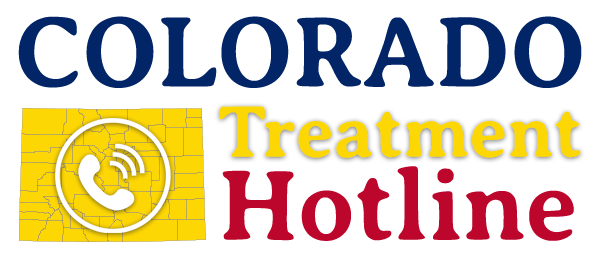Las Animas County Colorado Addiction Treatment Hotline
Las Animas County Colorado Substance Abuse Treatment Hotline
Substance Abuse Statistics Las Animas County Colorado
Las Animas County in Colorado experiences slightly higher substance abuse rates compared to the state average[1]. The National Survey on Drug Use and Health (NSDUH) provides valuable data on substance use and mental health at various levels, including substate regions like Las Animas County[2]. Colorado, in general, is grappling with an epidemic of opioid use disorders and overdoses, with an estimated 224,000 Coloradans misusing prescription drugs annually[3]. Substance abuse rates in the state have been steadily increasing, with opioids emerging as the most commonly abused drug[4]. Understanding the specific trends and statistics within Las Animas County is crucial for developing targeted interventions and support systems for individuals struggling with substance abuse.
Opioids are a highly prevalent drug of abuse in Las Animas County, consistent with the state’s pattern. The frequency of opioid abuse highlights the critical need for all-encompassing treatment and preventive initiatives designed to specifically address this problem.
Apart from opioids, other substances that are frequently abused in the area could be: – Alcohol – Cannabis – Prescription medications The wide variety of chemicals that are being misused in Las Animas County should be considered in efforts to combat substance abuse, and interventions should be specifically designed to target each of these issues. In order to combat substance misuse in the community, it is imperative that teens and young adults have access to drug and alcohol treatment resources.
Demographic patterns and trends play a significant role in understanding substance abuse within Las Animas County. The county has a higher percentage of Hispanic/Latino population, which may influence the prevalence and nature of substance abuse within this demographic group[1]. Factors such as socioeconomic status, access to healthcare, mental health resources, and prescription drug coverage can all impact substance abuse patterns within the community. By examining these demographic nuances and trends, stakeholders can develop culturally sensitive and targeted interventions to address substance abuse effectively among different population groups in Las Animas County. Understanding the intersection of demographics and substance abuse is essential for implementing holistic and inclusive strategies to combat the challenges posed by substance abuse in the county.
References
1. Las Animas County, Colorado Health Care Needs …. from publications.jsi.com
2. National Survey on Drug Use and Health (NSDUH). from www.samhsa.gov
3. Prescription Opioid Overdose Prevention. from la-h-health.colorado.gov

Las Animas County, CO Substance Abuse Treatment Resources

Las Animas County Colorado Government Medication Assisted Treatment
Las Animas County Colorado Government Medication Assisted Treatment. Partners for a Drug-Free Community – Las Animas and Huerfano Creating the Change are partnering to promote Medication Assisted Treatment (MAT) to address alcohol or opioid misuse and connect the community with support. If you or someone you know needs support with substance misuse, there are resources available to help. A substance misuse issue or addiction is NOT a sign of weakness. Addiction is a disease which can be treated. There are ways to get help and many people successfully recover. MAT is one proven way to help reduce cravings and promote full recovery.
Las Animas County Colorado Narcotics Anonymous
Las Animas County Colorado Narcotics Anonymous. Narcotics Anonymous (NA) Las Animas County CO, is part of the Pikes Peak Area narcotics, anonymous and serves as a beacon of hope for individuals navigating the challenges of addiction. With a focus on support, understanding, and mutual aid, this NA chapter provides a lifeline to those seeking recovery from narcotics dependency. Through regular meetings and a strong sense of community, members find solace and strength in their shared journey towards healing. In the shadow of Pikes Peak, NA offers a safe and welcoming space for individuals to reclaim their lives and embrace a future free from the chains of addiction.

Las Animas County CO Alcoholics Anonymous Southern Colorado
Las Animas County CO Alcoholics Anonymous Southern Colorado. The Central Service Office of Southern Colorado (CSO) is a service branch of Alcoholics Anonymous including Districts 8,6,& 3. In Las Animas County, Colorado, Alcoholics Anonymous (AA) finds a steadfast presence through the Central Service Office of Southern Colorado. This office serves as a vital link between AA groups and individuals seeking support for alcohol addiction in the region. By coordinating meetings, providing resources, and fostering a sense of community, the Central Service Office offers essential assistance to those on the path to recovery. Through its dedication to anonymity, unity, and recovery, AA in LAs Animas County CO thrives under the guidance of the Central Service Office, providing hope and healing to individuals and families affected by alcoholism.

Las Animas County Colorado Medication-Assisted Treatment Resources
Las Animas County Colorado Medication-Assisted Treatment Resources. Thanks to Senate Bill 19-01, the University of Colorado’s Center for Prescription Drug Abuse Prevention and the College of Nursing secured additional funding to increase the scope and number of locations of the medication-assisted treatment expansion pilot launched by Senate Bill 17-074, expanded services to 16 counties. The overarching goal of the program is to increase access to MAT and other evidence-based treatment and behavioral health therapies for individuals with opioid use disorder in the designated program counties. IT MATTTRsTM collaborated with several partners to provide a collection of resources, guides, and tools to assist practices in treating patients with opioid use disorder (OUD). The MATerials Resource Toolkit provides sample handouts, protocols, and procedures for practices to effectively treat or refer patients with OUD.

